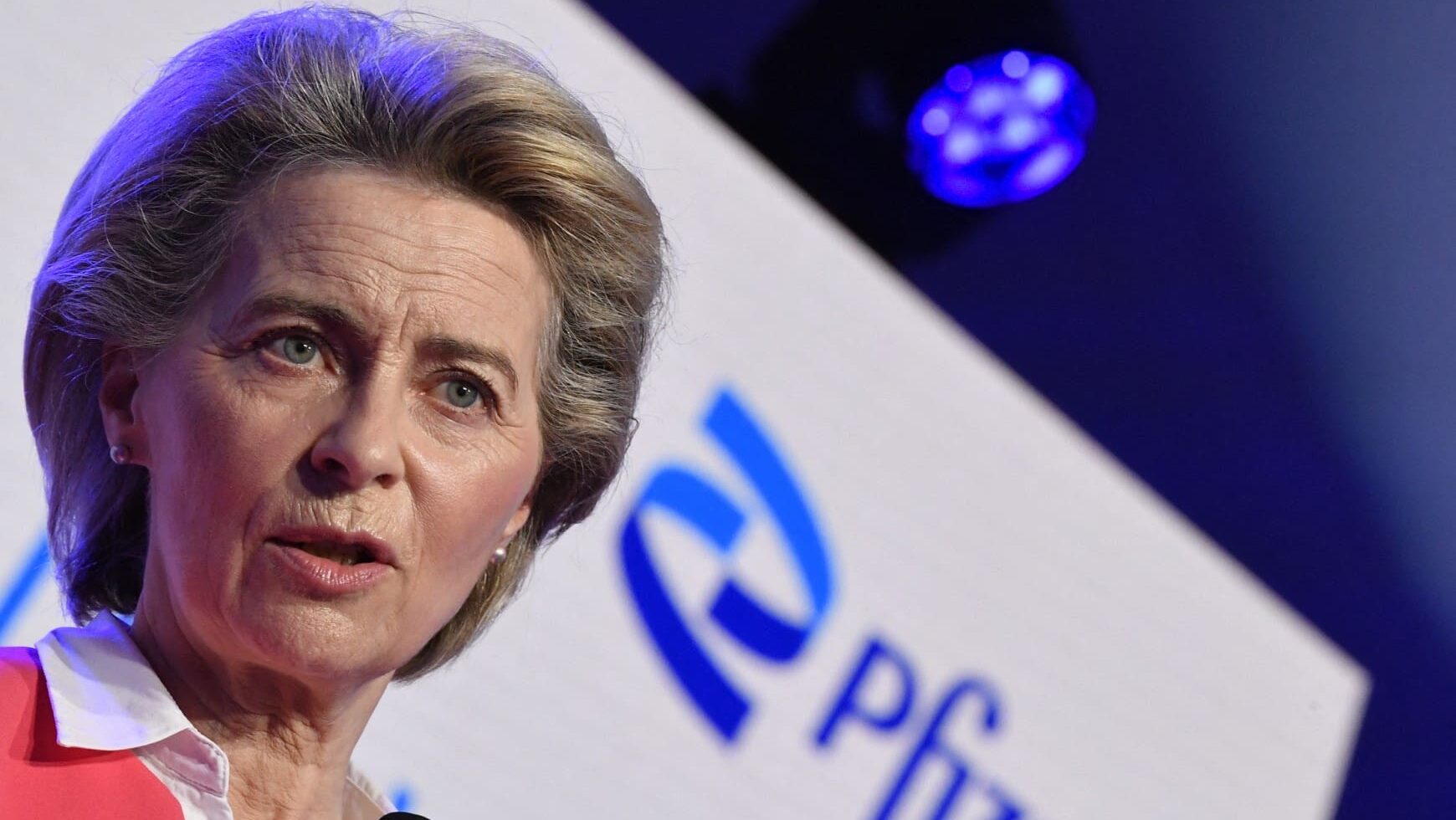
European Commission President Ursula von der Leyen addresses a press conference after a visit to oversee the production of the Pfizer-BioNtech Covid-19 vaccine at the factory of US pharmaceutical company Pfizer, in Puurs, on April 23, 2021.
Photo: John Thys / POOL / AFP)
In their latest newsletter, Transparency International (TI) EU comments on the Le Pen verdict, welcoming what they call the exposure of a “fraud scheme.” At the same time, however, TI highlights that “the European Parliament does not take a systemic approach to eliminating corruption within its own walls.”
TI recalls a 2023 investigation by investigative journalism platform Follow the Money, which revealed that almost 140 MEPs embezzled funds and 108 had to pay back a total of more than 2 million euros between 2019 and 2022 for irregularities concerning the payment of assistants. The report highlighted a structural problem in the European Parliament that goes beyond the case of the French right-wing politicians found guilty yesterday.
TI notes that the monthly allowance of 4,950 euros that MEPs receive are spent without the need to produce receipts, a practice that the EP is—unsurprisingly—reluctant to change. To date, 31 MEPs still owe 1.44 million euros. In such an environment of grey areas and non-transparency, singling out the RN politicians and Le Pen in particular certainly smells of double standards.
As we reported, on Tuesday, 31 March, Marine Le Pen and several members of Rassemblement Nationale were convicted for misusing 474,000 euros received from the European Parliament by using their parliamentary allowances for national partisan purposes. With a four-year prison sentence (two years in prison, replaceable by an electronic bracelet), a €100,000 fine, and five years of immediate disqualification, Le Pen’s case smacks of political score-settling, especially when compared to the impunity of center-left leaders who remain untouchable despite their scandals.
For one, Commission President Ursula von der Leyen is under investigation in what is commonly referred to as ‘Pfizergate.’ The European Public Prosecutor’s Office (EPPO) is examining the negotiation of vaccine contracts during the COVID-19 pandemic with U.S. pharmaceutical giant Pfizer, with possible implications of corruption and abuse of power. Her trial was postponed until after the European elections so as not to “interfere” with the voter’s will. There is still no word on the case even though it is almost a year since the June 2024 elections.
Eva Kaili, a Greek socialist and former vice-president of the European Parliament, faces Qatargate, a case pending since December 2022 for allegedly accepting Qatari bribes to influence European decisions. This is in addition to her irregular use of funds for assistants, paying staff absent from Brussels, and for trips unrelated to her mandate. Other scandals, such as Moroccogate (MEPs, many from the center-right and socialist parties, suspected of accepting favours from Moroccan actors) and the Huawei case (MPs apparently receiving benefits from the Chinese tech corporation) remain under investigation.
According to Nick Aiossa of Transparency International EU, “Parliament needs to manage better how public money is spent.” Without strict controls, the €212 million a year for assistants and the general allowance is a persistent weakness.
